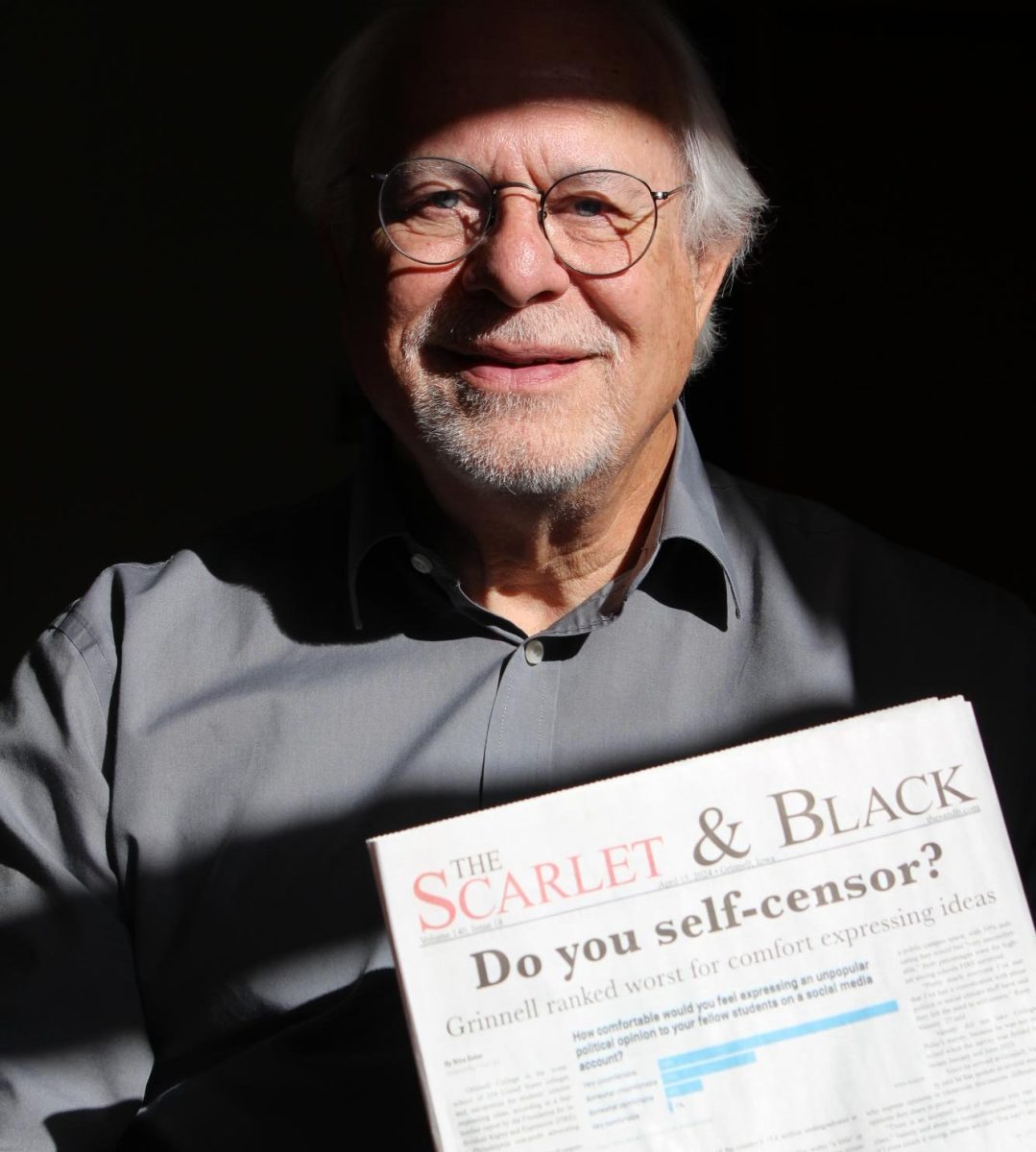By Marcus Cassidy
cassidym@grinnell.edu
As a cinema lover, the Oscars have always been a mixed experience for me. Between my knowledge that the Academy of Motion Picture Arts and Sciences represents a problematic value criteria when judging film and my hypocritical curiosity when checking the results, imagine my surprise when the headline news from that night had nothing to do with good actors and everything to do with bad ones.
In the wake of “The Slap Heard Around the World,” Will Smith has apologized publicly for his actions and resigned from the Academy. Despite this, he faces potential disciplinary action alongside continued public ridicule. The suggestion that Smith, an actor whose career demands respect, may lose a long-deserved Oscar makes me sick. The energy and emotion surrounding the event has little to do with Will Smith, Chris Rock or even Jada Pinkett Smith. It has everything to do with our conceptions of fame, violence, and the Academy.
Rock’s identity as a Black man, father of a Black girl, and star of “Good Hair,” a documentary that specifically talks about the cultural importance of hair for Black American women tells us that this wasn’t “just a joke” that didn’t land. That particular defense ignores the history of whiteness in the Academy, the personal struggles of Jada and the systemic shame that Black women are forced to confront surrounding “good hair.”
Public criticism of “cancel culture” has usually been in defense of Rock’s insult comedy, a type of humor that relies on an audience’s ability to laugh at itself. His immediate reaction to the slap was shock at the Smith family’s supposed sensitivity — shock that resulted from a misconception that their problems served as Rock’s material.
The issue of Rock’s disrespectful joke should’ve started and ended with a slap, a brief altercation between two Black men when one’s boundary was crossed; however, the rest of the world thinks otherwise. Chris Rock didn’t courteously accept the slap with grace; he allowed himself to play the victim by distancing the situation from its inciting event. There was public outrage at the news that Rock wouldn’t press charges and that the Academy hadn’t escorted Smith out immediately.
Am I condoning the slap as the best solution to that situation? Of course not. Will could’ve easily taken it on the chin, gracefully received his award and given an eloquent speech that criticized Chris Rock and brought attention to his wife’s condition. But here’s a non-rhetorical question: why is that the expectation?
I could never be Will Smith. Aside from my lack of acting talent and charm, he has shouldered more burdens than I could imagine. The parasocial assumption that Will Smith should be held to a higher standard because of his fame and notoriety is ridiculous.
This marks one of my main grievances: misplaced accountability. The Academy’s public response that they don’t “condone or support violence” comes with an invisible asterisk. They may not condone physical violence, but violence presents itself in many forms.
A slap is considered violence because the harm is directly observable. We don’t see an act of violence when Jada, a Black woman who has consistently called attention to the lacking diversity at the Oscars, is made the punchline of a hurtful joke. It took the Academy 40 years to consider the expulsion of Roman Polanski following his conviction for unlawful statutory rape, but a situation that exclusively involves Black men has demanded their immediate and hasty response.
Will Smith may lose the crowning achievement of his career, but people like Louis C.K. still win Grammys after constant cases of sexual harassment. We uniquely demonize physical violence because our society fights to hide systemic oppression.
Violence has been an accessible and necessary route to justice, a tool for those who can’t use white institutions like the Academy to protect themselves. Amy Schumer and the audience members like her who were “traumatized” because of their lived experience that’s never known the violence of gentrification, of stereotypes and of genuine injustice.
It’s time to recognize the standards of whiteness, conflict and perfection we use to idolize our celebrities. We reject their mistakes and belittle them as if their flaws aren’t what make them human. If you can’t imagine choosing physical force, consider how lucky you are to have never needed it.


































































